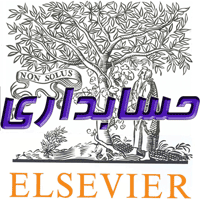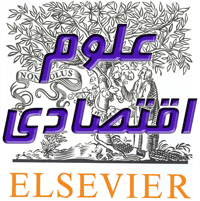دانلود مقاله isi بررسی نقش رهبری در شیوه های مدیریت دانش و نوآوری
دانلود رایگان مقاله الزویر در مورد بررسی نقش رهبری در شیوه های مدیریت دانش و نوآوری (کلیک کنید)
توضیحات :
وبسایت مکاله اقدام به ارائه پروژه ی ساینس دایرکت با فرمت pdf، از انتشارات الزویر برای رشته علوم اقتصادی، و با عنوان بررسی نقش رهبری در شیوه های مدیریت دانش و نوآوری، نموده است.
مشخصات این مقاله :
عنوان مقاله :
The role of knowledge-oriented leadership in knowledge management practices and innovation
ترجمه فارسی عنوان :
بررسی نقش رهبری در شیوه های مدیریت دانش و نوآوری
سال انتشار : 2014
متعلق به مجله یا ژورنال : نشریه پژوهش های کسب و کار – Journal of Business Research
فرمت: PDF
تعداد صفحات: 11
شماره پروژه: 5097
کلمات کلیدی :
Knowledge-oriented leadership,Knowledge management,Innovation performance,Knowledge management practices,Partial least squares,Technological companies
رهبری دانش محور، مدیریت دانش، عملکرد نواموری، شیوه های مدیریت دانش،حداقل مجذورات جزئی، شرکت های فن آوری
چکیده :
Abstract
This study aims to examine the role of a specific type of organizational leadership – knowledge-oriented leadership – in knowledge management (KM) initiatives that seek to achieve innovation. An analysis of the knowledge-based view of the firm gives rise to several hypotheses, with structural equation modeling (SEM) analysis through partial least squares (PLS) providing the methodology to test these hypotheses. This approach yields results for a sample of empirical data from technology industries. This paper presents empirical evidence of the mediating effect of KM practices in the relationship between knowledge-oriented leadership and innovation performance. In line with previous literature, results show that, although KM practices themselves are important for innovation purposes, the existence of this kind of leadership encourages the development and use of KM exploration (i.e., creation) and exploitation (i.e., storage, transfer, and application) practices. A major implication is that, as a result of this development and the use of KM practices, the firm is able to improve its performance in product innovation.
مقدمه این مقاله :
Introduction
Emerging in the nineties, knowledge management (KM) is a wellestablished discipline in the academic field and business world alike.Based on the principles of KM, organizations worldwide develop and implement KM initiatives to improve the efficiency of business processes,increase the productivity and quality of their services, and find new solutions and products for their customers (Nguyen &Mohamed, 2011).Moreover, in technological settings, innovation is usually a direct outcome of KM effectiveness (Darroch & McNaughton, 2002; Du Plessis, 2007) as well as being one of the main objectives for knowledge-creating companies in their pursuit of competitive advantages (Nonaka & Takeuchi, 1995). Although the importance and use of KM for organizations is unquestionable, recent reports such as Bain’s Management Tools and Trends 2011 reveal low satisfaction rates among managers in relation to both the use of thismanagement tool and the results of its application (Rigby & Bilodeau, 2011). In general, the design and implementation of KM practices are a difficult task for managers, and the effectiveness and success of such practices depend heavily on their optimal adjustment to organizational factors (Bierly & Daly, 2002). Consequently, managers should establish the ideal contextual conditions to propel and optimize the organization’s use of KM practices and initiatives through the design of tools such as human resource management (HRM) practices (e.g., Chen & Huang, 2009; Lin, 2011;López-Cabrales, Pérez-Luño, & Valle-Cabrera, 2009), setting welldefined corporate culture (e.g., DeTienne, Dyer, Hoopes, & Harris, 2004;Donate & Guadamillas, 2010; Nguyen & Mohamed, 2011), the implementation of technology systems (e.g., King & Marks, 2008; Lai, Wang,&Chou, 2009; Lin& Huang, 2008) and the establishment of organizational structures (e.g., Gold, Malhotra, & Segars, 2001; Singh & Kant, 2009).Leadership behavior is another important factor, since leaders have an enormous impact on the direction and effectiveness of KM within their organizations (Nguyen & Mohamed, 2011). On the one hand,leaders can create conditions that allow participants to exercise and cultivate their knowledge manipulation skills, to contribute their own individual knowledge resources, or to obtain easier access to relevant knowledge (Crawford, Gould, & Scott, 2003; Politis, 2002).
توجه :
– این مقاله به صورت کامل و با فرمت پی دی اف آماده خرید اینترنتی و دانلود آنی میباشد.
توضیحات بیشتر در مورد پروژه :
در این مقاله خواهید خواند که این مطاله با هدف بررسی نقش خاصی از رهبری سازمانی- رهبری دانش گرا- در مدیریت دانش به دنبال دستیابی به نواوری دنبال شده است. به عنوان یک نتیجه از این توسعه و استفاده از شیوه های مدیریت دانش شرکت قادر به عملکرد ان در نواوری محصول می باشد.
دانلود رایگان مقاله الزویر در مورد بررسی نقش رهبری در شیوه های مدیریت دانش و نوآوری (کلیک کنید)


